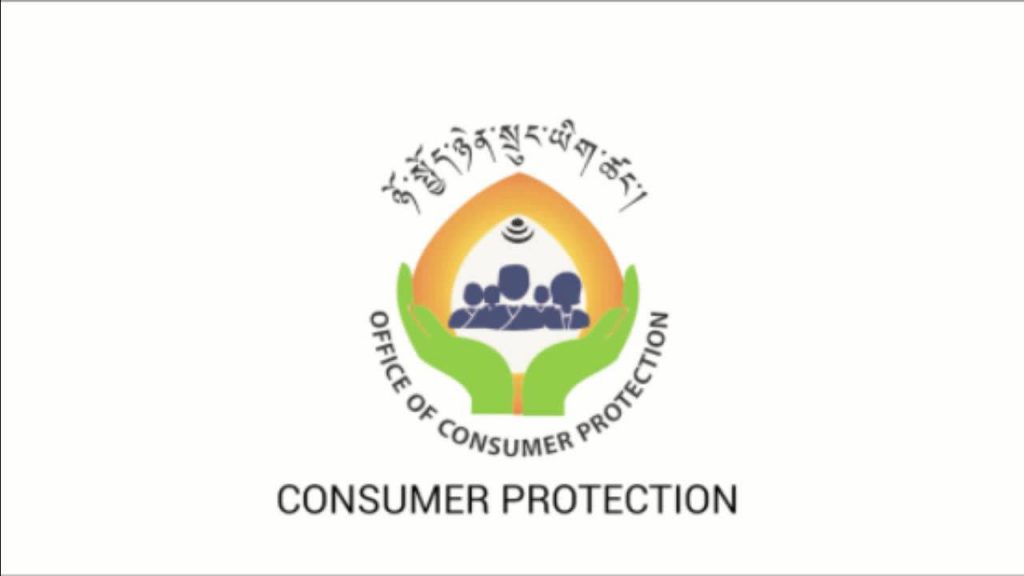In total, Nu. 243,209.80 were imposed as fines from 40 business entities; while a total of Nu. 1,957,176.00 were refunded to aggrieved consumers from as many as 39 business entities.
By Sonam Deki
According to the OCP annual report 2021-2022, Office of Consumer Protection (OCP) received a total of 200 complaints, 86 were general and 114 were individual complaints.
Complaints are categorized into two types – (i) general, and (ii) individual. General complaints are those that affect the consumers in general because of a prevailing unfair or unethical trade practice by a business entity; while individual complaints are those unfair trade practices or violations which are lodged by an individual or a group seeking financial compensation or other remedies.
Complaints are generally classified under these broad rubrics – (i) supply/ sale of substandard or faulty products, (ii) delay in delivery of goods and services, (iii) price manipulation, and (iv)use of incorrect weights & measures. Supply of defective goods and delay in the delivery of goods or services are the most common complaints received.
According to the OCP report, by July 2022, the office has registered 117 complaints on miscellaneous, 38 on defective product and 24 on delay in delivery of goods and service.
Following an investigation of complaints, the OCP takes a variety of actions in accordance with Bhutan’s Consumer Protection Act of 2012. Depending on the violation classifications, businesses may be required to correct their practices within a certain time frame, and punitive actions such as fines may be imposed. In total, 40 business entities were fined Nu. 243,209.80, while 39 business entities refunded Nu. 1,957,176.00 to the aggrieved consumers.
Consumers in Thimphu Thromde filed the most complaints of 147, while there were no major complaints from Bumthang, Dagana, Gasa, Haa, Lhuentse, Pema Gatshel, Trongsa, or Tsirang Dzongkhags.
The most complaints were received in January and February 2022, during the pandemic lockdown period, when free trade and marketing were severely disrupted and consumer movements were also restricted. During that time, the majority of complaints were about businesses charging more than the maximum allowable selling prices of fruits and vegetables set by the Ministry of Agriculture & Forests (MOAF) and Liquefied Petroleum Gas (LPG) delivery agents selling LPG cylinders at prices higher than the maximum allowable selling prices set by the Department of Trade (DOT).
In general, the numbers of complaints have risen over the course of the year. The average number of complaints per month during the pre-lockdown period (July 2021 to December 2021) was 9.3, while the average number during the post-lockdown period (March 2022 to June 2022) was 14.
The OCP has made it easier for consumers to lodge complaints by increasing the number of channels through which complaints can be lodged. From all the channels available, Toll-Free number was mostly used with 47% followed by the on-line complaint management system on the OCP website (27 %) while others like social media(Facebook and Whatsapp) and walk-in remained under-used by the complainants.
Instead of simply responding to consumer complaints, the OCP is actively engaged in proactive market surveillance and monitoring of businesses to ensure that they practice ethical trade and meet minimum market standards. However, the rate of surveillance coverage is directly proportional to the available resources – human resources and budget according to the OCP report-2021-2022.
Besides arbitrary surveillance, the OCP focuses on business sectors with which consumers most frequently interacts and/or may be more prone to unethical practices in order to improve efficiency. The OCP has also been able to make moderate use of the existence of regional offices. Grocery stores, meat markets, fruit and vegetable markets, automobile workshops, petroleum retail outlets, agricultural sales and service representatives (ASSR), and the wood-based industry (WBI) were among the 1,902 businesses covered.
The surveillance focuses on their compliance with regulatory requirements such as labeling, receipt issuance, price information display, and proper use of weights and measurements. Other parameters, such as package integrity, product expiration dates, and adulteration, are also checked. Price compliance is also checked for businesses such as ASSR that deal in products whose selling prices are set by a Competent Authority of the government.
While the variety and complexity of products and services are available in the market which is bound to expand in the future, making consumer protection tasks more difficult. One growing challenge is monitoring growing e-commerce businesses that operate on free social media platforms such as Facebook and Instagram. Pyramid schemes are becoming all too common as internet connectivity grows, putting many innocent consumers at risk of fraud. Even during this fiscal year, three pyramid schemes were investigated and shut down: Crowd-1, On-Passive and Kangen Water Scheme.
According to office, while the OCP needs to be more prepared, consumers too need to be more diligent of such promotions and schemes available on social media and report to the OCP at first sign of such fraudulent businesses.
 BHUTAN TODAY The New Perspective
BHUTAN TODAY The New Perspective

